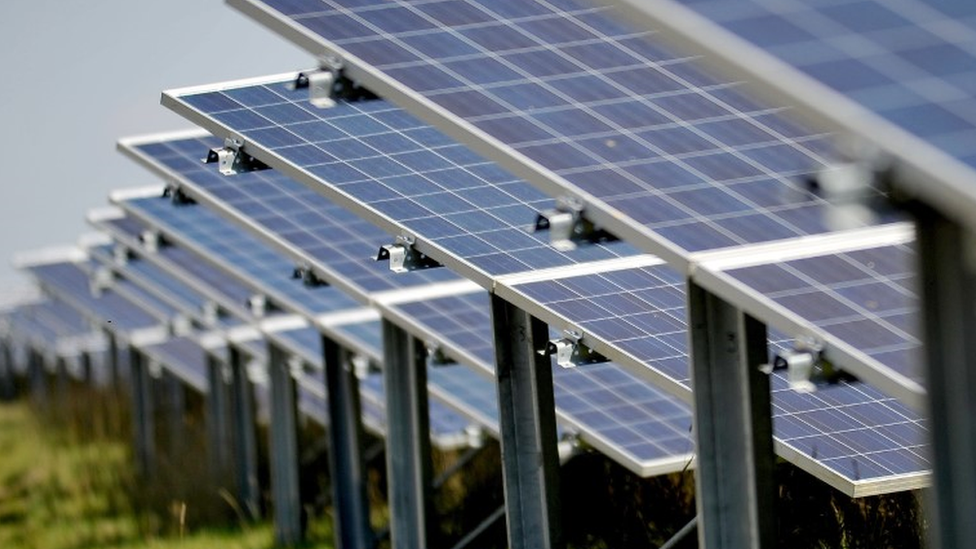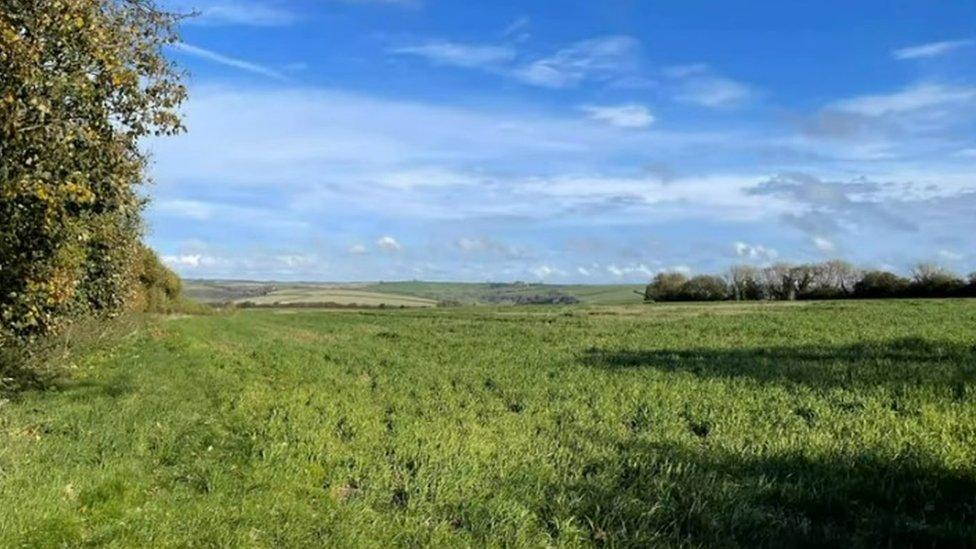Maiden Newton: Government rejects solar farm in conservation area
- Published

Dorset would be expected to host solar farms to meet green energy targets, a planning inspector said
The government has rejected plans for a solar farm in a conservation area, overturning a planning inspector's recommendation.
Developers Enviromena proposed a 12-megawatt array in two fields at Cruxton Farm near Maiden Newton, Dorset.
A planning inspector said it would make a "modest" but "integral" contribution to green energy targets.
However, Housing Minister Felicity Buchan said the damage to a National Landscape could not be justified.
She disagreed with the inspector that the need for solar power was an "exceptional circumstance" that warranted development in the protected zone.
National Landscapes, formerly known as Areas of Outstanding Natural Beauty, usually preclude major developments.

The Macmillan Way, a right of way from Lincolnshire to Abbotsbury, runs through the proposed site
The inspector recommended the development on appeal after Dorset Council refused planning permission.
He said Dorset's "strong solar irradiance" made it an ideal place for solar farms to contribute to the government's climate change targets.
The inspector said the county "would be expected to host large amounts of future solar photovoltaic arrays in any future net zero scenario".
However, Ms Buchan's ruling, external said the damage to the conservation area carried "great weight".
She said the solar farm would also have harmed a "fine panoramic view" from the Macmillan Way long distance footpath.
Natural England, the Dorset Wildlife Trust and the Dorset Campaign to Protect Rural England had also voiced opposition to the scheme.
Previously Enviromena said the 43-acre (18-hectare) array would have powered nearly 5,000 homes every year.
Spokesman Mark Harding said: "It's the only way to drive down energy prices and for the UK to become self-sufficient in terms of energy production and decarbonise the grid network."

Follow BBC South on Facebook, external, X, external, or Instagram, external. Send your story ideas to south.newsonline@bbc.co.uk or via WhatsApp on 0808 100 2240, external.
Related topics
- Published4 November 2022

- Published23 November 2021
